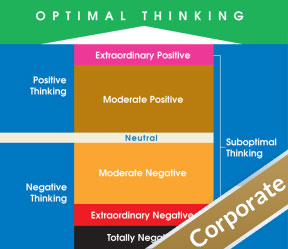close


Musk’s unpredictable behavior alarms and charms shareholders and observers. Advocating free speech, Musk offered to buy Twitter after rejecting a board seat he had accepted. After Twitter accepted his bid, Musk put the acquisition on hold. He then withdrew his offer.. After taking over, the company, Musk immediately fired CEO, Parag Agrawal and two key executives. He insisted employees to return to the workplace. 75% of Twitter’s employee head count was eliminated..
Previously, Musk defied a local health order that banned the manufacture and assembly of non-essential goods during the pandemic. In a Tesla earnings call, he labeled the California shelter-in-place orders as “fascist”.
Musk tweeted that Tesla’s stock price was too high, prompting an immediate price drop. The statement disregarded his agreement with the SEC to stop tweeting about his businesses. He also tweeted “FREE AMERICA NOW” about closing businesses during the pandemic.
Before that, Musk accused a cave rescuer of moving to Thailand to marry a child and being a “child rapist”. He drank whisky and smoked a marijuana joint during a podcast interview. He announced that he had secured funding for a go-private takeover of his company. 17 days later, he retracted the statement.
So how does Musk think when faced with probing investment analysts during earnings conference calls? I analyzed the thinking he displayed during Tesla’s 2013, 2014, and 2015 first quarter conference calls.
While combing through the text, I was surprised by his lack of coherence. I wondered about his stress level. Many of his statements were disjointed and incomprehensible. Regardless, I did my best to rate the content based on my Hierarchy of Thinking Styles model.
Having interpreted thousands of Optimal Thinking 360 Assessment reports, I expected Musk’s thinking profile to emphasize Optimal Thinking and extraordinary positive thinking. I anticipated a small amount of the other thinking styles. I also expected Musk to articulate actual results compared to desired results. But, I was wrong.
The assessment describes how Elon Musk thinks in this specific situation. Musk presents himself as a moderate thinker—more positive than negative—when he discusses Tesla’s performance and expectations during these calls. He often uses words like “good”, “positive”, “hedging”, and “okay”. He also uses phrases like “cautiously optimistic”, “good idea”, “quite significant”, “fairly small”, “not so much”, and “moderate effect”.
Musk deploys moderate positive thinking to display reasonable confidence when discussing market realities. This is particularly evident during the 2013 and 2015 calls. He focuses on how things can be done and how to make them happen. In 2014, the combination of extraordinary thinking and Optimal Thinking starts to eclipse his moderate approach. This is in keeping with his persona as an extraordinary innovative engineer.
As a rule, moderate thinkers are motivated by acceptance from others. In these challenging situations, it appears that Musk chooses to fit in. While his vision is extraordinary and optimistic, he is conservative about delivery, and avoids going out on a limb. Musk often seeks approval from Tesla shareholders before selling his shares.
When the cost is high, optimism is the wrong strategy. Optimal Thinkers face brutal facts. In high risk situations, we protect the downside with contingency plans. Optimal thinkers cut the “should haves” from processes and outcomes. We take the best actions to achieve the best solutions. By choosing the best option in any situation,
Musk uses Optimal Thinking to articulate his commitment to optimization.
we should just try to produce cars in the right way for the various markets.
He deploys Optimal Thinking when discussing the seats in the Model X.
They are the nicest second row seats you’ve ever seen in any car ever.
He also uses Optimal Thinking to pursue his vision while embracing negativity.
We’re slowing down U.S. deliveries and trying to make people as happy as possible, given the production constraints.
Are you a CEO, senior executive or rising star who is facing a tough challenge? Optimal Thinking executive coaching will give you the best chance of achieving immediate victory and ongoing success. With Optimal thinking, you will experience peak performance while dealing with any challenge.
The transcripts used in this article are © SeekingAlpha.com. 2013, 2014, 2015.
Read my analysis of “How Jeff Weiner Thinks” (former LinkedIn CEO). These posts are part of the “How CEO’s Think™” Optimal Thinking article series.
Feel free to nominate a well-known leader for a thinking analysis in the comments below.
3 Responses to “How Elon Musk Thinks”
Fascinating. I learned some valuable info here. Would you consider analyzing Richard Branson’s thinking?
Very interesting take on Elon Musk’s thinking process. He seems to want to include moderation into his high risk innovative style when uncertain. I have several employees with this high risk-moderate risk thinking profile. I agree that optimal thinking is critical to get past the to and fro and get resolution. Will look forward to your next post.
Your analysis is provocative and meaningful. A new way to understand this genius, when he is challenged (although respectfully). Musk has already made his mark on the world. His business initiatives delight those of us who don’t have the guts, acumen, or energy to make this kind of difference. While we are in awe of his daring, you make a good point that he treads lightly during investor conference calls. This says something about his street smarts. Thanks for this great post. I would love to see your analysis of Mark Zuckerberg’s and Howard Schultz’s thinking.
Leave a Reply